How coronavirus could change funerals forever
Lockdown has had a profound impact on how we mark the passing of our loved ones and process grief. But it’s changed funerals in other ways too, writes Len Williams, and some of those changes could be here to stay
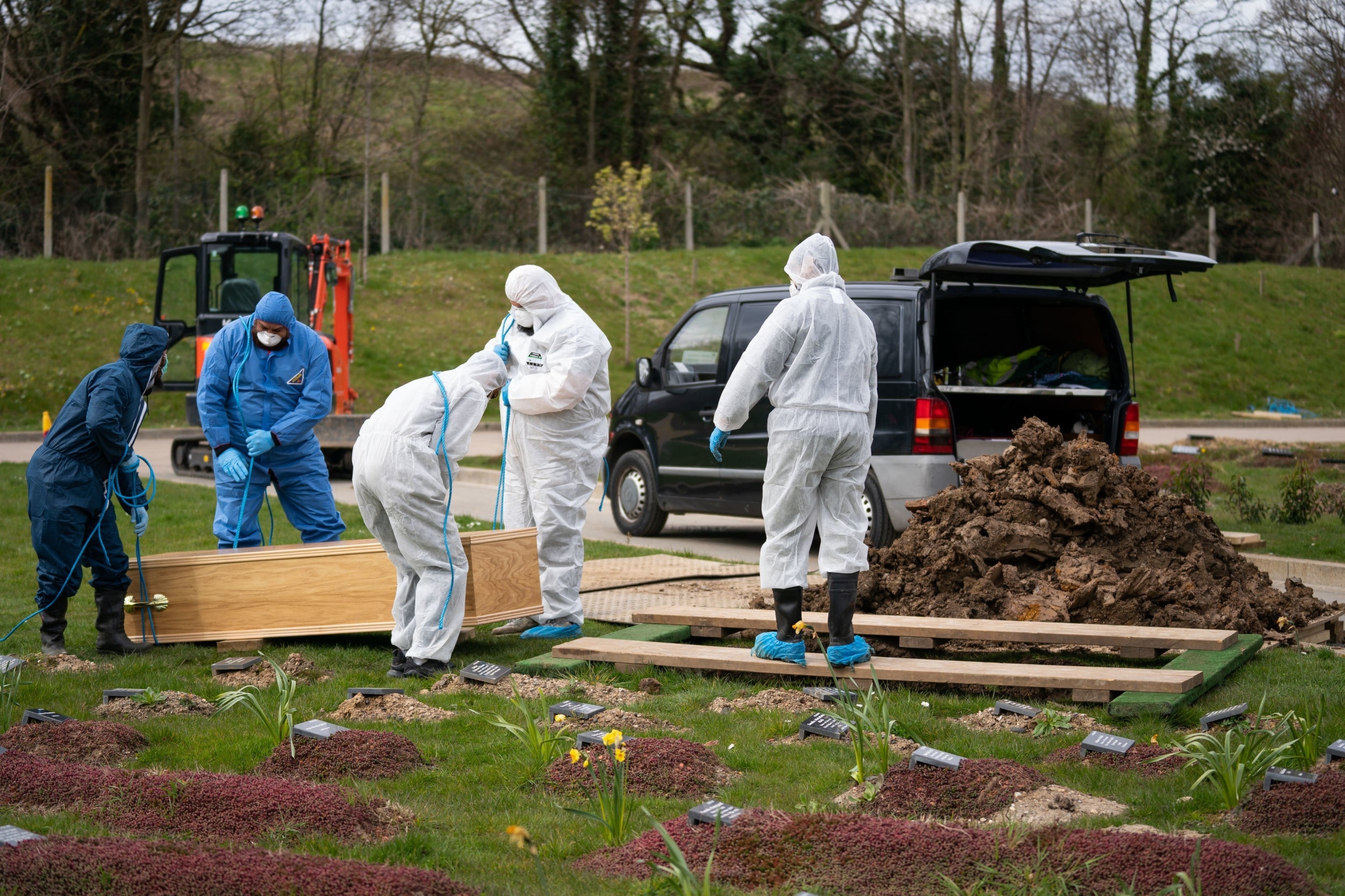
It was horrible. We even had to social distance when we were at the crematorium,” says James McConnell. “I could only look at my sister and brother, but I couldn’t hold them since we don’t live in the same household.” On 16 March, a week before the government’s lockdown came into effect, McConnell’s mother Caroline died from cancer but, due to social distancing rules and a strict limit of five mourners at Woking Crematorium, the funeral didn’t take place until almost a month later on 14 April.
The experience of grieving under lockdown has been surreal, says McConnell. “It really feels like we’re living in a sort of dream world,” he tells me. “You have to accept that’s the hand you’ve been dealt in this horrific time and you just have to stay strong.”
Fortunately for McConnell and his family, they were able to hold a small service at their local church. Well-wishers unable to attend paid their respects, lit candles and said prayers from home. Once lockdown is lifted, the family plans to get his mum’s many friends and relatives together to celebrate her life.
Others haven’t been so lucky. “Families are feeling quite cheated at the moment,” says Sue Gill, a bereavement counsellor with the grief charity Cruse. “A funeral is an important ritual and a way to say goodbye.” However, with the coronavirus lockdown imposing strict limits on funeral attendance, tens of thousands of those goodbyes have been severely curtailed.
When the government announced restrictions on 23 March, they included guidelines for funerals. The number of guests had to be as low as possible in order to maintain social distancing of two metres between mourners, with most local authorities restricting attendance to around 10 people. In Leeds, Bradford, Belfast, Aberdeen and other towns, councils barred anyone from attending. Once bodies are cremated or buried, the rules also ban gatherings afterwards.
This intervention in normal funeral practices marks a profound change in the way people process grief and the passing of a loved one. And while most people understand the need to socially distance, the lockdown has made an already difficult time harder.
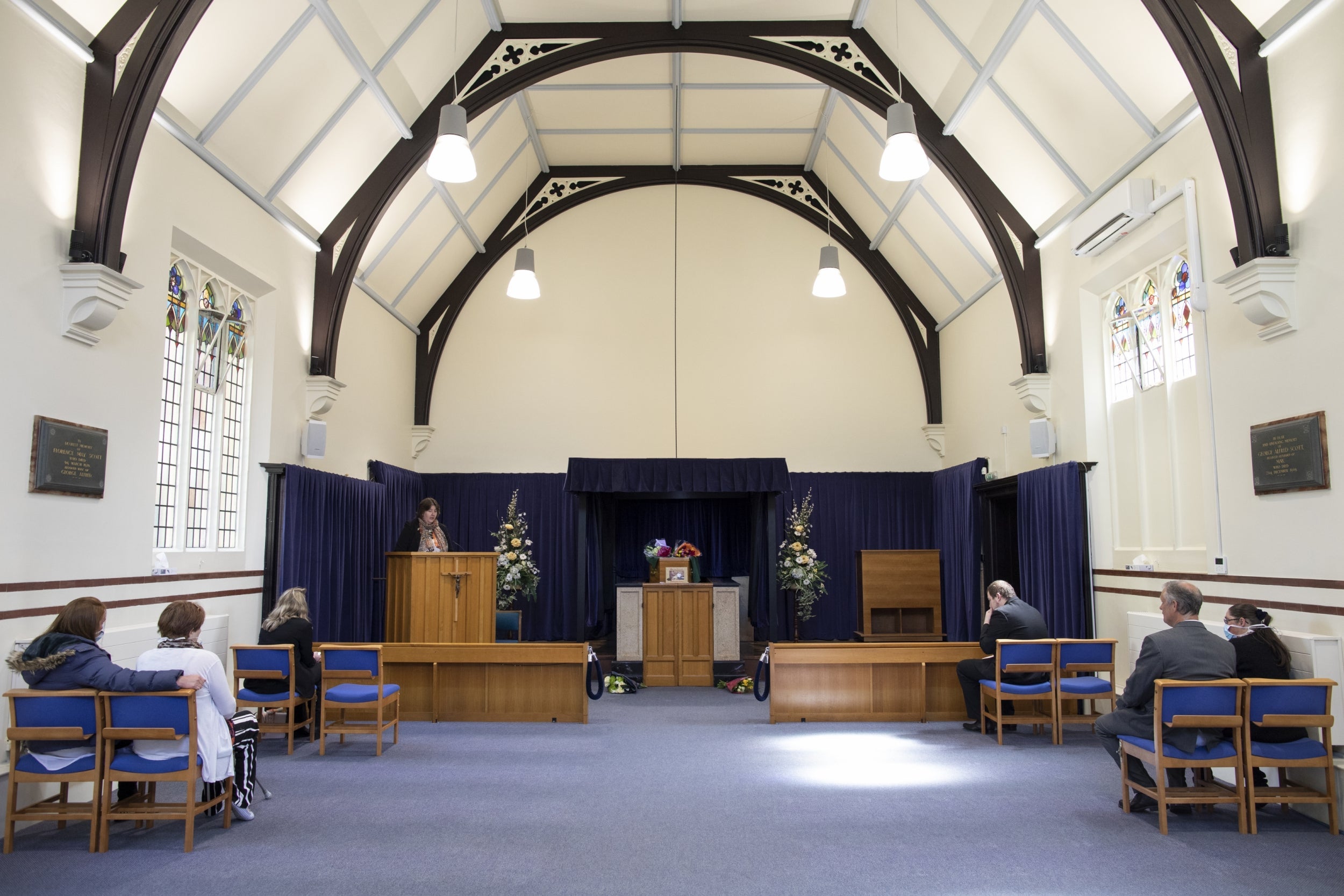
The lockdown has changed funerals in other ways too – not least the bureaucracy surrounding death. Lynne Styler recently lost her father Kenneth, from Worcestershire. “All the organisation was done remotely, over phone and email, including the registration of his death, which was delayed due to sudden closures,” she tells me.
For Styler and her family, social distancing reduced much of the human interaction that helps people deal with grief. For example, the funeral directors “said they wanted to shake our hands but couldn’t because they had to comply” with social distancing measures. There were some touching moments, though – despite the local council restricting attendance to six mourners, “people on the street came out and stood at the doorsteps to pay their respects [as the hearse passed], which was lovely,” Styler says. “Some drove to the crematorium and stood outside their cars too.”
Direct cremations, where a body is cremated without any family present, have grown in popularity during the lockdown. Adele Haywood, whose family opted for this style of funeral for her grandfather Harry Rhodes, tells me that though many of his closest family and friends were unable to attend the funeral, it means more of them can hold a memorial in the future. “Many of Granddad’s friends and his sisters are over 70, so they are social distancing anyway,” she says.
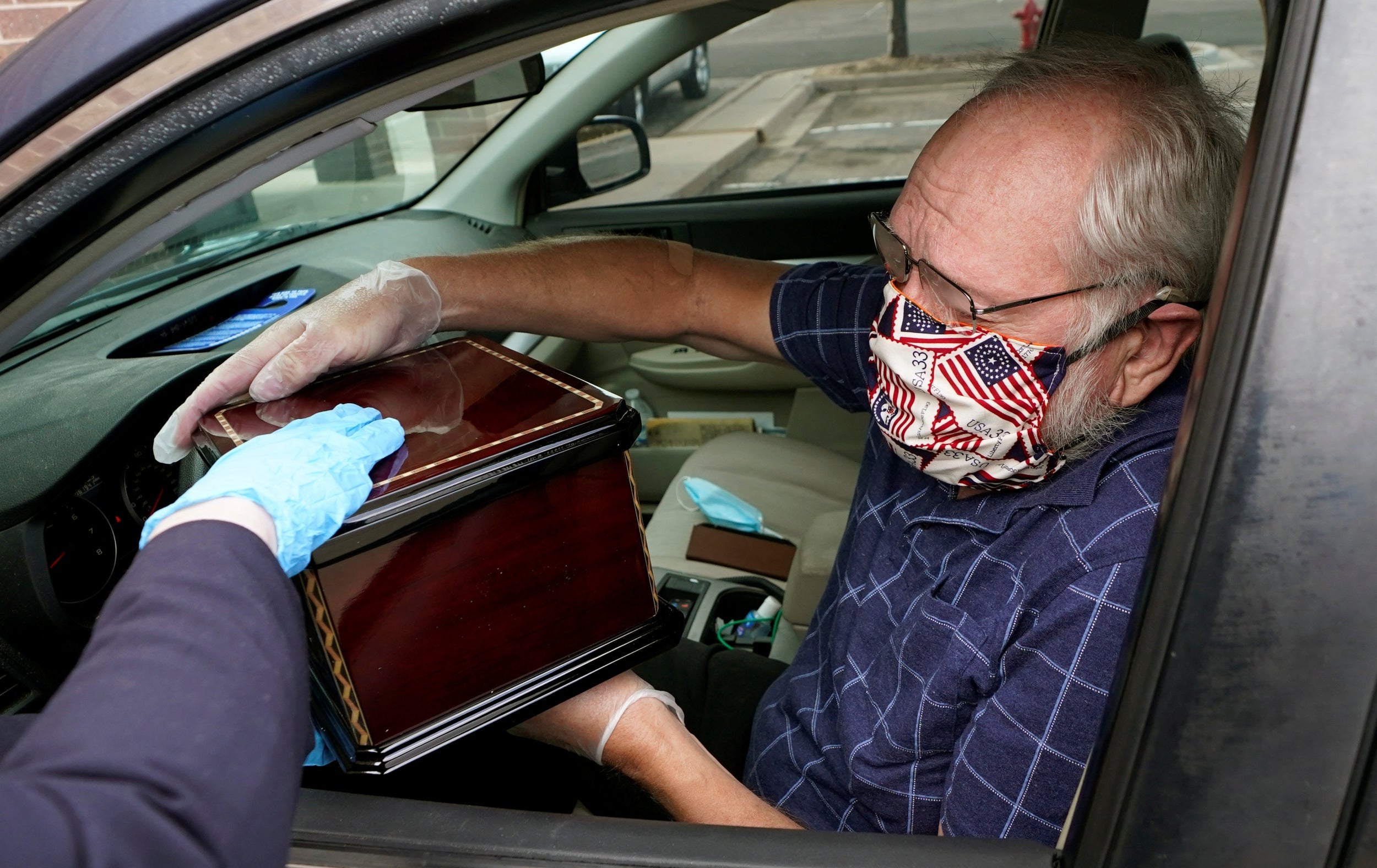
Research by Farewill, a will writing service, found that there has been a 300 per cent increase in demand for direct cremations since the beginning of the lockdown. This disposition option typically costs under £1000, making it significantly cheaper than traditional funerals. Rather than having a ceremony at a church followed by a burial or cremation, the body is taken straight from the hospital or home immediately after death and cremated with no family present. The family then receives an urn and can decide what to do with the ashes later.
Harry, who built miners lamps and was a club singer, would have turned 88 this July. So, lockdown permitting, Haywood’s family plans to have a service and wake on his birthday. And since direct cremation is cheaper than a traditional funeral, Haywood says that “with some of the money we’ve saved, we can put some money behind the bar so people can have a drink on him”.
I woke up one morning and thought: ‘If I can do Sunday services on YouTube, why not do funerals in the same way?’
For minority religions in the UK, lockdown has introduced additional complexity. Sanjay Shah, director of Edgware-based Indian Funeral Directors, explains that in many Indian religions the tradition is to have an open coffin where viewing of the body takes place and final rites are performed, “which now we cannot do because of social distancing”.
Shah adds that at Hindu and Sikh cremations in the UK, it is normal for a member of the family (usually a son) to enter the back room of the crematorium and operate the button which moves the coffin into the furnace. “We’re now not even allowed to do this,” he says.
In Islam and Judaism, funerals take place as soon as possible – preferably within 24 hours of death. Kabir Rashid, director of a Muslim funeral business in Bradford, says that “the NHS has done a fantastic job. We get a call from the hospital saying they have had a Covid-19 death and we have been able to do most funerals on the same day.”
In Islam, funeral directors must wash the body and perform rituals, and usually around four assistants help with this ritual purification. Under lockdown, Rashid’s business has taken the precaution of limiting this process to two employees. The firm has also been inundated with support: “The community has been amazing. We’ve received a lot of PPE – overalls, goggles, masks, gloves and hand sanitiser – for preparing the bodies.”
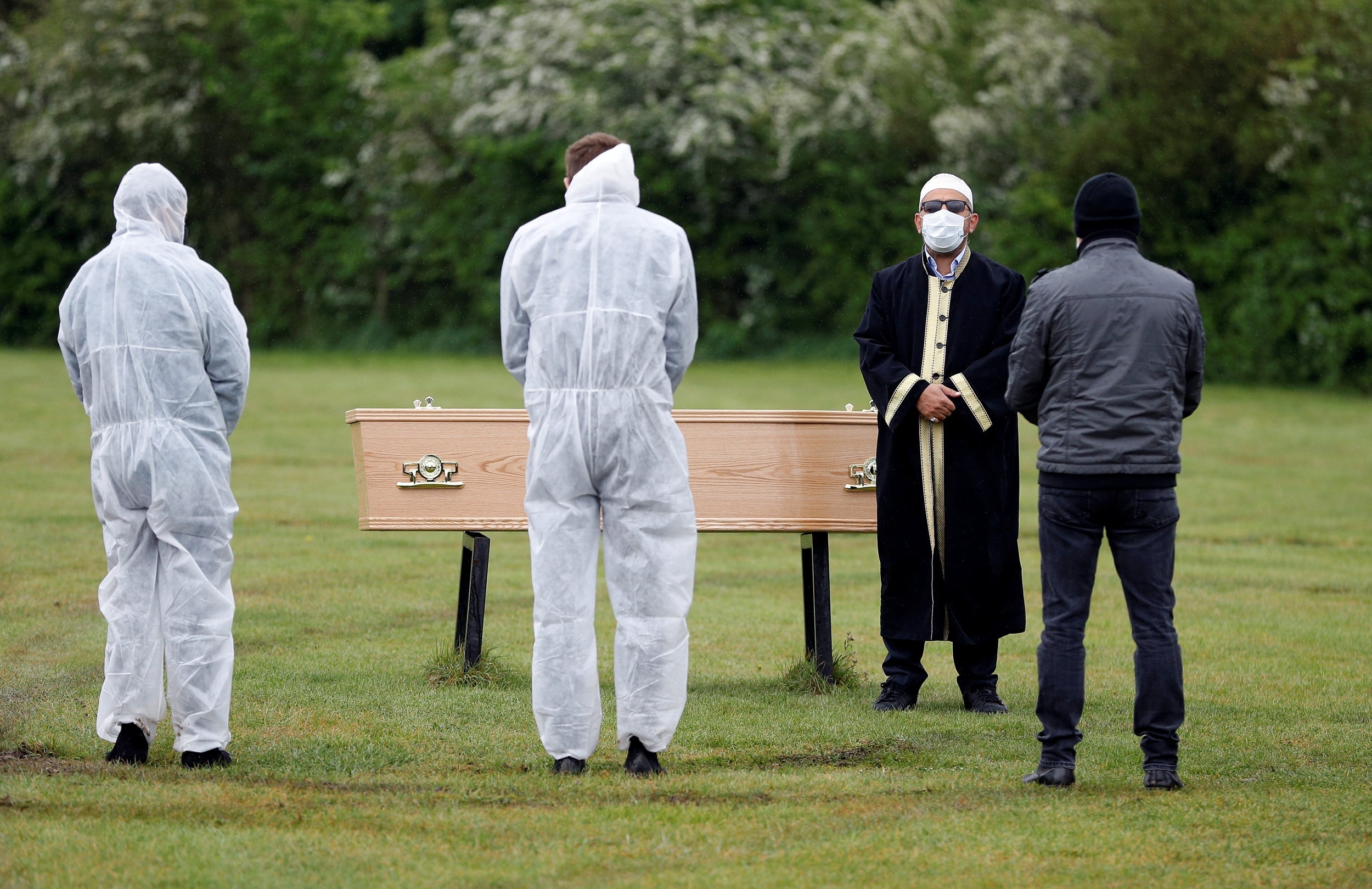
Just like all the millions of employees getting used to Zoom meetings, lockdown has, in just a few months, introduced a wide range of new technologies to the funeral sector.
Dr Marjory MacLean, a Church of Scotland minister at the Perthshire parish of Abernyte, has been recording her Sunday morning services and uploading them to her YouTube channel for some time. “I woke up one morning and thought: ‘If I can do Sunday services on YouTube, why not do funerals in the same way?’” Maclean has conducted three funeral services online since lockdown began.
The minister will speak to the family of the deceased over the phone to discuss the service and funeral arrangements. They can decide whether to make the service public or private, and a link to a recording of the service is sent to “attendees”. MacLean’s funerals also include links to hymns on YouTube, which means mourners can sing along at home.
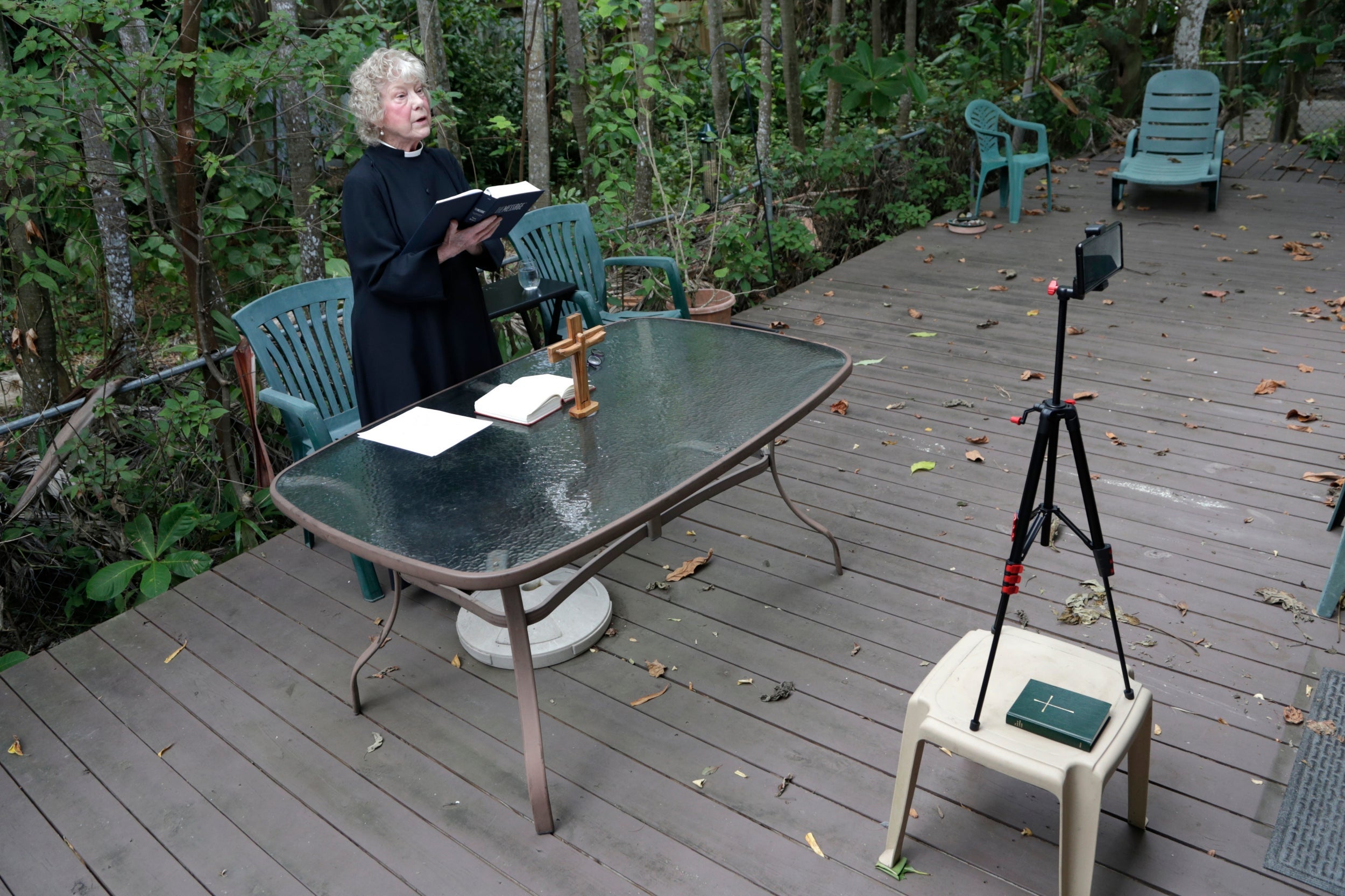
She explains she was motivated to begin virtual services because “a memorial thanksgiving is an important part of the bereavement process”. MacLean was concerned that many families were planning to put off the committal of their loved ones for months until they could hold a restriction-free funeral. But how could they begin the grieving process, she asked.
There was a logistical question too. “If everybody chose to put off the committal of the remains until the lockdown is removed, it was going to leave clergy with a nightmare.” The backlog of memorial services could potentially be overwhelming.
It really feels like we’re living in a sort of dream world. You have to accept that’s the hand you’ve been dealt in this horrific time and you just have to stay strong
MacLean’s services are recorded and posted online shortly after, but live streaming is also common.
Shaun Folds runs Leicester-based UK Funeral Video Services. After lockdown was announced on 23 March, he says: “I’ve never known anything like it. I began receiving 60 to 70 phone calls a day and it’s been relentless since.” Folds’ business had been growing anyway, recording and live streaming funerals for people who couldn’t attend for one reason or another. However, lockdown has seen business rise dramatically.
“Families are really crying out for this kind of service at the moment,” he says. With strict limits on how many people can attend burials or cremations, “deciding between themselves who can go or not is devastating”.
When live streaming, Folds mainly uses the online streaming service Vimeo. It’s not always straightforward, however. “Live streaming is the most nerve-wracking because there are so many things you can’t control or expect for.” For example, “the church may have especially thick walls, so I can’t transmit the live recording.” In this case, Folds records the video then uploads it to Vimeo as soon as possible after the service. While streaming is not the “ideal option, you can still feel a part of what’s going on”, he says.
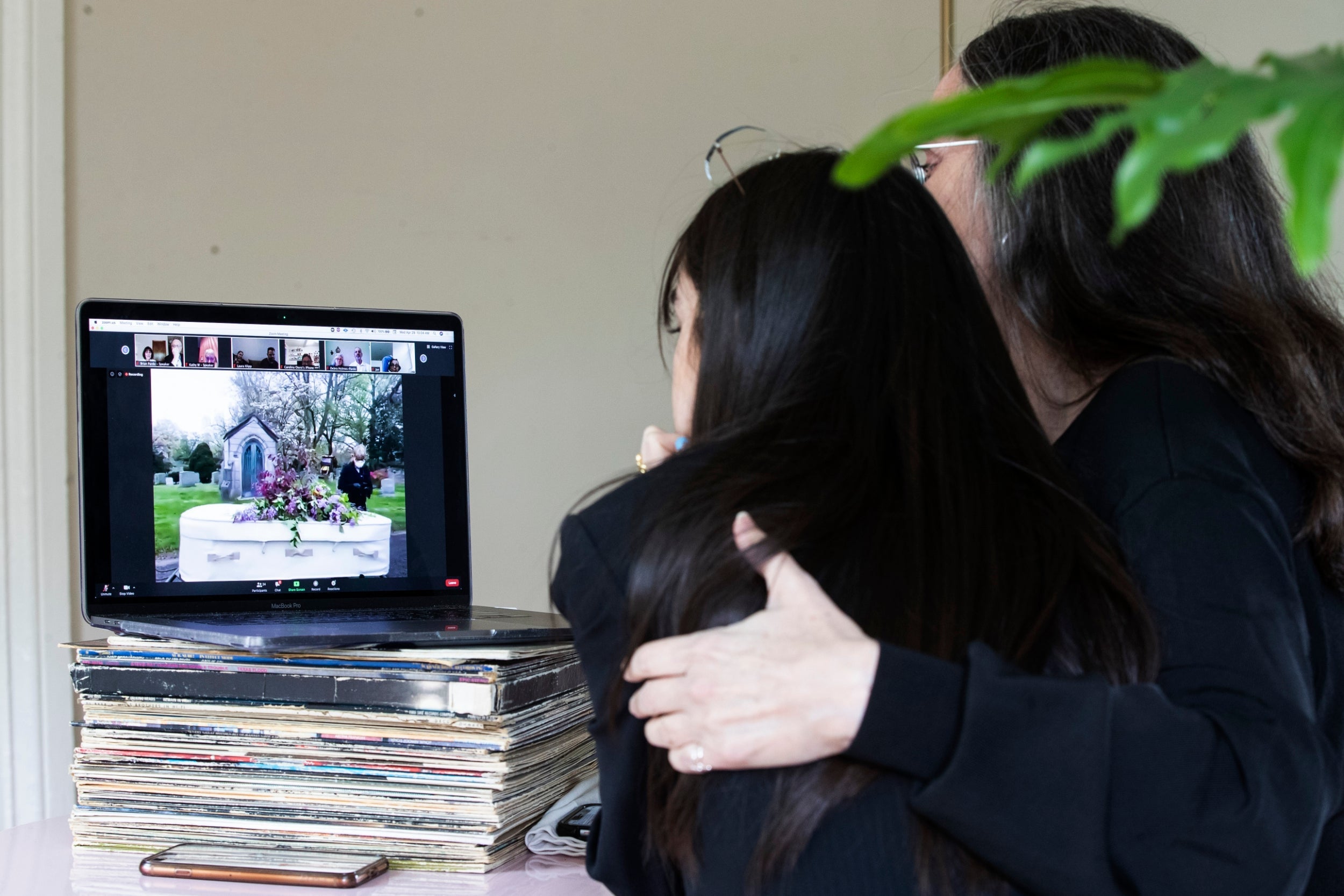
How should one prepare for a live-streamed funeral then? There are no set-in-stone conventions for this new form of mourning; Folds simply recommends that “you’ve got to be somewhere comfortable so you can take in what happens”.
Technology is changing other aspects of funerals too. David Collingwood, director of funerals at Co-op’s Funeralcare, says most consultations with families are now being conducted over the phone or video-call services, rather than face to face. It has changed administrative duties too. “Some of the UK’s institutions have traditionally been wary of technology but it has now been embraced,” he tells me. For instance, until a few weeks ago, bereaved families would have to take a death certificate to the registry office in person – that can now all be done over email.
There is never an easy time to lose a loved one, but the loss is especially difficult during lockdown. Sue Gill of Cruse says that the social distancing rules prevent people from doing many things they would normally want to do. “Not being able to visit a dying person is especially hard,” she says. Being unable to say goodbye face to face, resolve arguments, say sorry or tell them how much they are loved is even more difficult. She points out that most deaths happening at the moment are not caused by coronavirus, and many people feel in some way cheated by this fact.
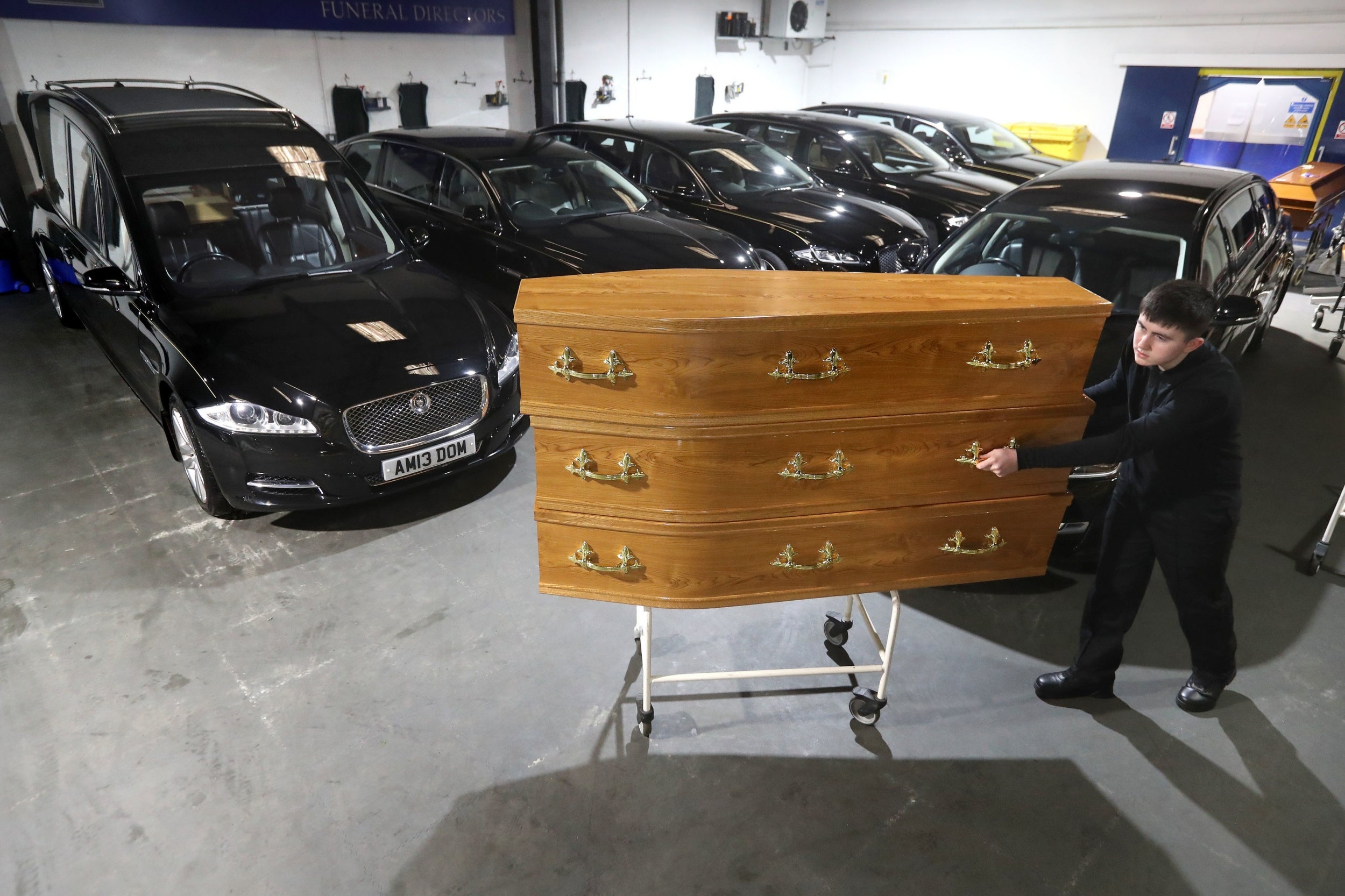
Gill says there is no “right” way to deal with grief, and everyone is different. That said, she suggests that bereaved people should try to talk about their feelings as much as possible: “If someone rings up and asks you how you are, don’t just say you’re ‘alright’ – tell them how you are really feeling.”
She also says it can be useful to write a letter to the person who has died, saying what you would have liked to tell them. Another technique is to use a journal as a coping mechanism. “You can read back over it and after a few months you might start to see progress or that you’re feeling a little happier,” she says.
From a pastoral perspective, MacLean adds that friends and relatives of the bereaved should “try to be super sensitive to the fact that there are extra layers of distress there” now. With the lockdown in place, “we all have to work a little harder, phone a little more often to compensate for the fact we can’t be there physically”.
Will the lockdown change funerals?
Many of those interviewed for this article said that they have planned some kind of memorial service for their deceased loved ones once the lockdown has been lifted.
However, Collingwood thinks this could potentially lead to a longer-term change in the way we commemorate the dead. Now that people have more time between the actual interment and the memorial, “I do wonder if people will be able to give more thought to the service itself”.
With the enforcement of social distancing measures, coronavirus has radically changed how people mourn their loved ones, disrupting longstanding rituals and practices. And, from the use of technology to the timing of memorial services, it may well have a permanent effect on the way we mourn the dead. While the long-term effects are yet to be seen, Collingwood wonders “if people’s road along living with bereavement will change”.
Join our commenting forum
Join thought-provoking conversations, follow other Independent readers and see their replies
Comments